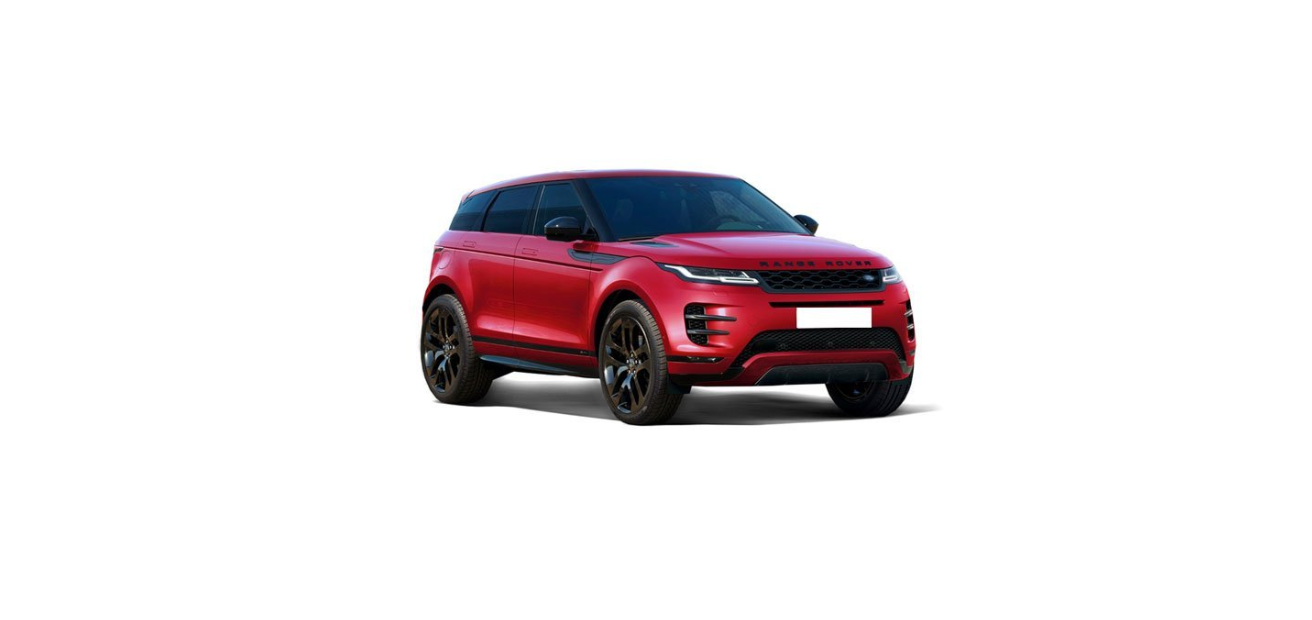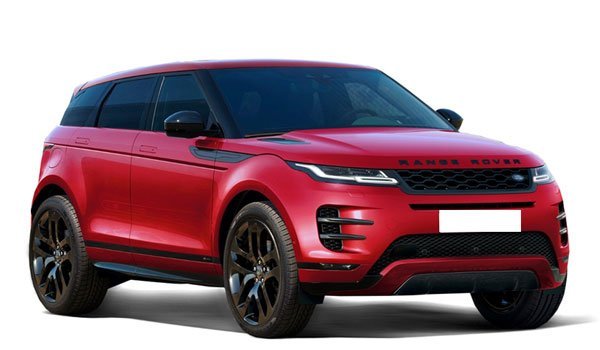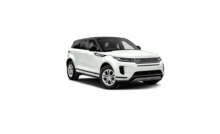2022 Land Rover New Range Rover Evoque Climate And Comfort Owners Manual




2022 Land Rover New Range Rover Evoque Climate And Comfort


CLIMATE CONTROL OVERVIEW
The climate control system allows the user to adjust heating, ventilation, and air conditioning settings. Alternatively, it can be used in automatic mode, which continuously monitors and adjusts output to maintain a desired set temperature. The vehicle has one of the following climate control panels:
- Standard climate control. See STANDARD CLIMATE CONTROL.
- Touch screen climate control. See TOUCHSCREEN CLIMATE CONTROL.
Depending on vehicle specification, the climate control system may be equipped with a Particulate Matter (PM) filter (PM 2.5).
TOUCHSCREEN CLIMATE CONTROL
Make sure the relevant safety warnings have been read and understood before using the features in this section. See TOUCHSCREEN SAFETY.
Air ionization technology is designed to improve the air quality within the cabin.
Heat Now and Vent now manual system operations can be enabled or disabled independently. The Heat Now feature warms the cabin, and the Vent Now feature circulates air around the cabin.
To access the CLIMATE screen, touch the Climate icon (1).
The main Climate screen display and control positioning may differ depending on your vehicle. However, the climate feature controls will function as described.
Unless specified otherwise, to switch on or off, touch or press the following screen icons, soft keys or menu setting options:
- Climate screen menu soft key. NOTES
Depending on your vehicle specification, this feature may appear on your lower control set. See CLIMATE CONTROL OVERVIEW.
- Air distribution soft key: Allows adjustment of air directly to the windshield, upper body, lower body, or combination of the three.
- Settings soft key: see CLIMATE SETTINGS.
- Climate features: see CLIMATE FEATURES.
- Cabin temperature and front seat temperature control displays: see SEAT COMFORT AND ADJUSTMENT.
- Rotary controls: Press to switch between, and rotate to adjust cabin or seat temperature for left and right-hand occupants. The center display shows the current set temperature or seat setting.
STANDARD CLIMATE CONTROL
In the interest of safety, only operate or adjust the system when it is safe to do so. Driver distraction can lead to accidents, potentially causing serious injury or death.
Do not adjust the climate controls, or allow the system to distract the driver, while the vehicle is moving. Driver distraction can lead to accidents, potentially causing serious injury or death.
The climate control touch panel is located on the lower center console. The interior climate can be adjusted as follows:
- Climate control on/off switch: Touch to switch climate control on or off.
- AUTO mode soft key: Press to switch fully automatic mode on. Various options for AUTO mode can be set via the Climate menu. See APPS SCREEN. NOTES
AUTO mode is the recommended normal operating mode. In AUTO mode, the system regulates cabin climate based on feedback from the vehicle’s sensors, helping maintain a stable and comfortable cabin environment.
NOTESWhen a climate setting is adjusted manually the system exits full AUTO mode, this overrides automatic climate adjustment and delivers only the selected settings.
- Maximum defrost and demist switch: Touch to switch maximum defrost and demist for the windshield on or off. Maximum defrost and demist directs dry air through the windshield vents for effective windshield defrosting and demisting.
- Max A/C soft key: Touch to switch maximum A/C mode on or off. Maximum A/C adjusts settings for quicker cabin cooling.
- A/C soft key: Touch to switch the Air Conditioning (A/C) system on or off. The A/C system can be switched on or off independently of the other climate control functions. The LED illuminates amber to indicate A/C is operating. NOTES
The A/C system can be switched on or off independently of the other climate control functions. However, this will not work if MAX A/C, or maximum demist, are active.
- Air distribution control soft key: Touch to access the air distribution menu. Face level, foot level or windshield vent outputs can be selected, or a combination of all three. NOTES
Air ionization technology is designed to improve the air quality within the cabin.
- Recirculation soft key: Touch to recirculate air inside the vehicle. NOTES
Prolonged use at low temperatures may cause the windows to mist.
- Rotary control display. The center of the rotary control displays the current requested temperature.
- Rotary control. Press to switch between cabin or seat temperature adjustment. Rotate clockwise to adjust the requested temperature upwards, and counter-clockwise to adjust the requested temperature downwards. See HEATED SEATS.
- Terrain Response button: Touch to enable terrain response. See TERRAIN RESPONSE OPERATION.
- EV mode soft key: Touch to enable the electric vehicle mode. NOTES
On non-PHEV models this key is marked All Terrain Progress Control (ASPC). See ALL TERRAIN PROGRESS CONTROL (ATPC) OVERVIEW.
- All Terrain Progress Control (ASPC) and Descent Control Mode soft key toggle: toggles between ASPC and Descent Control modes. See ALL TERRAIN PROGRESS CONTROL (ATPC) OVERVIEW and DESCENT CONTROL MODE. NOTES
On non-PHEV models this key is marked Descent Control Mode. See DESCENT CONTROL MODE.
- Dynamic stability control (DSC) off soft key: Press to switch dynamic stability control off. See SWITCHING DYNAMIC STABILITY CONTROL (DSC) OFF.
- Start/stop soft key. Use to disable the automatic engine stop/start feature. See AUTO STOP/START.
- Blower speed adjust button: Press the blower speed button then use one of the rotary controllers (8) to adjust the cabin blower fan speed up (clockwise) or down (counter-clockwise).
- Heated rear screen soft key: Touch to switch on or off. If left on, it deactivates after a timed period, dependent on the outside temperature.
- Heated windshield soft key: Touch to switch on or off. If left on, it deactivates after a timed period, dependent on the outside temperature.
The EV mode soft key (10) and ASPC/Descent Control soft key (11) are configured differently on non-hybrid vehicles.
When the external temperature is low enough that ice may be present on the road, an amber snowflake warning lamp illuminates in the instrument panel. See EXTERNAL TEMPERATURE (AMBER).
- In cold ambient conditions, the windshield and rear screen heaters switch on automatically when the engine is started.
- The feature can be switched on or off via the Climate menu on the touchscreen. See APPS SCREEN.
- THE FOLLOWING APPLIES IF THIS VEHICLE IS FITTED WITH AN AIR IONIZER.:
- United States of America, Federal Insecticide, Fungicide, and Rodenticide Act (FIFRA):
- This vehicle, which may be fitted with a regulated pesticide device (air ionizer) was produced at the following facility: EPA Est. 93184-GBR-2
- California Air Resources Board (ARB), Air Cleaning Devices Regulation:
- The following applies to the air ionizer device that may be fitted in this vehicle:
CLIMATE FEATURES
Operation of the relevant icons, buttons and switches are dependent on the vehicle’s specification.
Some of the following features may appear on the upper screen of a vehicle, depending on vehicle specification. Unless specified otherwise, to switch on or off, touch or press the following screen icons, soft keys or menu setting options:
Power.
Air Ionisation.
AUTO: Dependent on the vehicle’s specification, the various options for AUTO mode can be set via the Climate Settings menu. See CLIMATE SETTINGS.
AUTO mode is the recommended normal operating mode. In AUTO mode, the system regulates cabin climate based on feedback from the vehicle’s sensors, helping maintain a stable and comfortable cabin environment.
When a climate setting is adjusted manually the system exits full AUTO mode, this overrides automatic climate adjustment and delivers only the selected settings.
SYNC: Aligns the front passenger’s climate settings to the driver’s settings.
If the climate control system is switched off, pressing the AUTO button or the defrost button switches the climate control system on.
Some of the buttons illuminate, or have an LED indicator lamp that illuminates to confirm selection.
Heated windshield: If left on, it deactivates after a timed period, dependent on the outside temperature.
In cold ambient conditions, the windshield and rear screen heaters switch on automatically when the engine is started. The function can be switched on or off via Climate Settings. See CLIMATE SETTINGS.
Maximum defrost: Touch and hold to switch maximum defrost for the windshield on or off.
Heated rear screen: If left on, it deactivates after a timed period, dependent on the outside temperature.
Do not attach labels to the rear screen. Do not scrape or use abrasive materials to clean the inside of the rear screen.
The heated windshield and rear screen operate only when the engine is running.
Air distribution menu soft key.
Air distribution to the windshield.
Air to the upper body.
Air to the upper and lower body.
Air to the windshield and lower body.
A/C.
The A/C system can be switched on or off independently of the other climate control functions. However, this will not work if MAX A/C or Maximum defrost is active.
MAX A/C: Touch and hold to switch the maximum A/C mode on or off.
Recirculation.
- Touch briefly to select timed recirculation. Recirculation switches off automatically after a set time (dependent on the ambient temperature).
- Touch and hold to select latched recirculation. Recirculation remains on until the button is pressed again.
Prolonged use at low temperatures may cause the windows to mist.
Some of the buttons illuminate, or have an LED indicator lamp that illuminates to confirm selection.
CLIMATE SETTINGS
To view the climate settings menu with touchscreen climate control: select the Settings icon, then select Climate. For standard climate control, use the CLIMATE option on the Apps screen. See APPS SCREEN.
The following options can be selected:
- Automatic heated screens: Automatic operation of the heated windshield and/or the rear heated screen can be enabled or disabled.
- Air Quality: The air quality system filters out fine particle matter, allergens and pollen and even strong smells. It is capable of filtering ultrafine particles up to and below PM2.5. It also neutralizes pathogens and odors. See AIR QUALITY SENSOR.
- Auto Air Flow: The blower speed for automatic operation can be set to Soft and Quiet, Balanced for Comfort, or Powerful and Fast.
- Auto sunroof blind: The auto sunroof blind feature can be enabled or disabled. See ELECTRIC WINDOWS.
AUTOMATIC RECIRCULATION
The climate control system monitors exterior air pollution and selects recirculation if it reaches a predetermined level. Automatic recirculation only operates when the Air Purity function is active. The sensitivity of the air quality sensor can be set via the Climate Settings screen. See AIR QUALITY SENSOR.
It is recommended that automatic recirculation is enabled, to maintain the optimum air quality within the vehicle.
AIR QUALITY SENSOR
The sensitivity of the air quality sensor can be adjusted by changing the Air Purity level.
To adjust the Air Purity level:
- Select the settings icon, on the lower touchscreen, then select Climate from the Lower screen display.
- Select Air Purity and then select the appropriate level: Low, Medium, or High.
- To deactivate, touch OFF.
REAR CLIMATE CONTROL
The rear climate control can be adjusted using the CLIMATE menu in Apps. See APPS SCREEN
- Select front row or 2nd row climate adjustment menu.
- Rear climate control power on/off soft button.
- Select upper (face) or lower (feet) air direction control.
- Temperature adjustment slider – blue for cold, red for warm.
- Settings menu. See CLIMATE SETTINGS.
The rear climate can be adjusted with the controls located in the rear of the center console.
Control the rear climate as follows:
- Heated seats icon: Press the respective button to switch the required seat on/off.
- Temperature Down icon: Press to adjust the rear vent temperature, three settings are available as follows:
Press once to cool the air from the rear vent, a single LED illuminates.
Press a second time to increase the level of cooling, two LEDs illuminate.
Press a third time to set the highest level of cooling, three LEDs illuminate.
NOTESTo increase rear vent temperature press the temperature up icon (3), each press raises the vent temperature by one setting.
- Temperature Up icon: Press to adjust the rear vent temperature, three settings are available as follows:
- Press once to heat the air from the rear vent, a single LED illuminates.
- Press a second time to increase the level of heating, two LEDs illuminate.
- Press a third time to set the highest level of heating, three LEDs illuminate.
NOTES
To decrease rear vent temperature press the temperature down icon (2), each press lowers the vent temperature by one setting.
AIR VENT OPERATION
Do not insert or attach items to the vents, e.g., pens, or air fresheners, etc. Doing so could potentially cause damage to the vehicle.
Do not use excessive force while operating the vent control or the thumbwheel. Doing so could potentially cause damage to the vehicle.
The vents can be opened using the following procedure:
- To open the vent, rotate the thumbwheel fully upwards, from the bottom (closed) position to the top (open) position.
- After the vent has been opened using the thumbwheel, use the direction control to adjust the direction of air flow.
The vent can only be fully closed again using the thumbwheel. The vent can be closed regardless of the position of the directional control.
SEAT COMFORT AND ADJUSTMENT
To access the seat control screen, select the CLIMATE menu from the APPS screen. See APPS SCREEN.
- Climate seating power icon: Touch to switch seat heating or cooling on or off.
- Front seats control: Touch to choose front seat climate control.
- Rear seats control: Touch to choose rear seat climate control.
- Massage icon: Touch to switch the seat massage function on or off. See SEAT MASSAGE.
- Seat temperature control: A positive number and red seat color indicate seat heating. A negative number and blue color indicate seat cooling. Seat temperature intensity is available between 0 and 3 for heating and 0 and -3 for cooling. See HEATED SEATS.
- HEADREST sub-menu: Not used.
- COMFORT seats sub-menu: The currently selected sub-menu for seat temperature adjustment.
- Settings icon: Enables adjustment of the seat temperature control settings. See SEAT SETTINGS.
HEATED SEATS
Heated seats consume a large amount of battery power. They only operate when the engine is running.
The heated rear seats (non-climate) can only be operated by pressing the buttons located at the rear of the center console.
- Heated seat icon.
- Touch the relevant heated seat icon to switch the required heated seat on at the maximum setting.
- The three LED indicators in the button illuminate.
- Touch a second time to set the heated seat at the medium setting. Two LED indicators illuminate.
- Touch a third time to set the heated seat at the lowest setting. One LED indicator illuminates.
- Touch a fourth time to switch it off.
The heated front seats are controlled via the lower touchscreen. See CLIMATE SEATS.
On vehicles with rear climate seats, the rear heated seats are controlled in the same manner as climate seats. See CLIMATE SEATS.
CLIMATE SEATS
The climate seats only operate when the engine is running.
To access the heated or climate seat screen, touch the seat icon on the lower touchscreen. Touch the heated or climate seats icon. See SEAT COMFORT AND ADJUSTMENT.
- Touch the respective seat power icon to switch the selected climate seat on or off.
- Touch to select, or deselect, the respective seat zone icon: Top, base, or both icons.
- Rotate the outer part of the rotary control to adjust the seat temperature. See SEAT COMFORT AND ADJUSTMENT.
NOTES
The temperature status of the selected seat zone is displayed on the touchscreen. The status orange is red for heated operation and blue for cooling operation.
NOTES
The rotary control displays a numeric + or – status. The outline of the rotary control illuminates to display red for heated operation and blue for cooling operation.
SEAT MASSAGE
Seat massage only operates when the engine is running.
Seat massage does not operate when the vehicle’s interior temperature is below 32°F (0°C) or above 122°F (50°C).
To access the screen, touch the seats icon on the lower touchscreen, then touch the massage icon. See SEAT COMFORT AND ADJUSTMENT.
To switch on or off, touch or press the following screen icons or menu setting options:
- Power icon.
- Seat zone icon.
- Wave, Up, Down, Shoulder or Lumbar massage.
- Rotate the outer part of the rotary control to adjust the seat massage intensity. See SEAT COMFORT AND ADJUSTMENT. NOTES
The outline of the rotary control illuminates to display the level of seat massage intensity.
Auto Massage can be set in Seat Settings. See SEAT SETTINGS.
The massage programs have a 10-minute cycle. Reselect for repeated use.
SEAT SETTINGS
To view the seat settings menu: touch the Seat app. Select the Seat app from the touchscreen. See APPS SCREEN.
The following options can be selected:
- Auto Massage: Switch the automatic massage feature On or Off.
- Time delay: Touch to select the time delay options. A time delay for the seat massage can be set from the start of a journey.
TEMPERATURE DIFFERENTIATION
The temperatures selected via the climate control system are perceived values. The system operates to achieve these selected values. The selected value does not represent the output temperature from the air vents. Air vent output temperature varies as the system automatically adjusts the vent outputs to achieve the set temperatures. The actual temperature in the cabin may differ from the set temperatures due to internal and external factors, including ambient temperature, sun load, and direction. The climate control system automatically adjusts the airflow level, direction, and temperature to compensate for these internal and external factors. Automatic adjustments in the air vent outputs may result in some temperature differentiation within the cabin.
Recent Posts
VW Jetta Engine Fuse Box Diagram
Access the comprehensive 2010-2018 VW Jetta Passenger Fuse Box Diagram to troubleshoot electrical issues effectively.…
VW Jetta Passenger Fuse Box Diagram
Explore the comprehensive VW Jetta Passenger Fuse Box Diagram to troubleshoot electrical issues effectively. Understand…
2023 Ford F-150 Lightning Fuse Box Diagram
Under Hood Fuse Box Location Remove the front luggage compartment cover. Under Hood Fuse Box…
2022 Kawasaki NINJA H2 SX SE Brake Lever Adjuster Owner’s Manual
2022 Kawasaki NINJA H2 SX SE Brake Lever Adjuster Owner's Manual NOTICE Only adjust the front…
2023 Land Rover Range Rover Evoque Exiting The Vehicle Owners Manual
2023 Land Rover Range Rover Evoque Exiting The Vehicle SINGLE LOCKING WARNING Before exiting the…
2023 Land Rover Range Rover Evoque Front Seats Owners Manual
2023 Land Rover Range Rover Evoque Front Seats FRONT SEAT SAFETY Make sure to read…
